But there’s another perspective of propriety. LDS singles can hold bitterness in their hearts towards someone they fault for their singleness. Never married singles can begrudge dating relationships that never worked out or simply never happened. Divorced singles can blame a former spouse. Widowed singles can embitter themselves towards whatever caused their spouse to die. Yet regardless of the cause, embittered singles can have beauty for ashes when they embrace the Savior and forgive. It begins with awareness Perhaps Sister Yee’s address spoke to me because I have my own need to forgive. My stake does absolutely nothing for singles. My leaders have responded to my pleadings by calling a stake rep who does absolutely nothing. They seem tolerant of a status quo in which sorely needed blessings are not received. Naturally, what results inside me is a roller coaster ride, and I’m not talking about my pancreatitis (although I could be)! I know I shouldn’t hold a grudge, and so I want to resist the conclusion that my leaders simply don’t care. At the same time, I struggle to see any evidence that they do care. I’m left resisting a bitterness launching itself at my door, eager to enter, and I’m tiring. In that context, Sister Yee’s recounting of the Old Testament story of Abigail seems apropos.
I like that phrase — “the weight of a warring heart.” It’s so poetic and yet so profound. It happens with belief If awareness is the first step towards forgiveness, the second must surely be belief. You must believe it’s possible for you to forgive before you’ll ever attempt it. If you truly believed it would never happen, you wouldn’t even try. This is where many who need to forgive stop. They somehow link forgiveness with the other person, the object of their bitterness and hurt, rationalizing that since said person will never comply with whatever their judgment demands, forgiveness simply isn’t possible. That link becomes especially strong when that other person offended egregiously. But forgiveness isn’t about the other person; it’s about you. It’s about stopping the canker of bitterness from blinding your vision and consuming your heart. It’s about healing the cancer that would steal your soul. Holding a grudge never punishes the other person; it punishes only you. That’s why I found Sister Yee’s personal testimony about forgiveness so moving. Her experiences encourage belief that forgiveness is possible, even when the hurt cuts very deep.
Her confession that she “still has work to do” makes relating to her experience much easier for me. And her hope for herself give me hope for myself. It continues with choice Yet the part of Sister Yee’s address I appreciate the most appears towards the end, where she reminds us of the importance of timing and adapting that timing to the individual. Not everyone heals at the same rate, and so we should be tolerant as others pursue their path of coming to Christ in their own way. That admonition to avoid judgments of timing is best applied within yourself. Extend kindness to yourself and allow your heart to take the time it needs to open to the Savior and experience the miracle of forgiveness. That kindness you extend to yourself by not insisting on a particular timetable promotes the healing you need. As Sister Yee testifies,
That last part is, I think, the key part of the journey of transformation the Savior promises. Unless you give to others what you have been denied, you’ll never be fully healed. Many LDS singles have been given ashes in their lives, but to receive beauty for your ashes, you must give beauty to others, for you always get what you give. So release the weight of your warring heart, believe forgiveness is possible, be kind with yourself, and give to others what you’ve been denied. When you do, you will find beauty from the ashes of your life. And that will bring you more joy in your journey.
0 Comments
The gospel has the answers I freely admit my ignorance. I’ve never been married or a parent, so I don’t fully understand the challenges of single parenting. But I do understand singleness and recognize several principles Brother Romney shared that apply to all LDS singles, regardless of age or circumstance. First, and perhaps most importantly, the restored gospel holds the solutions to life’s problems. You’ll see many of those solutions only after adopting the perspectives the restored gospel encourages. Far too many LDS singles think a solution will eliminate their problem so they can live more comfortably. Often real solutions instead allow you to leverage your problems so you can grow and become more than you were before. Brother Romney brought out that perspective beautifully. The hope, joy, and strength which he found as a single father came from “small, simple things” like family prayer, expressions of encouragement, magnifying callings, and seeking direction from inspired leaders. Our Heavenly Father has a plan of happiness for you. That plan might not resemble the one you’d make, but His plan will best help you attain maximum happiness. You’re not in it alone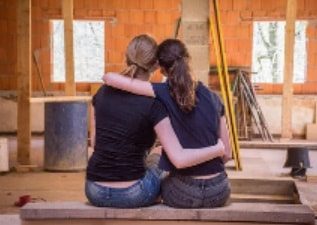 In his article, Brother Romney raised an excellent question: “I was a father trying to raise daughters on my own. . . . How could I help them prepare to become women?” This variation on the more common theme of “How can I meet the challenge when I don’t seem fit for it?” has troubled many LDS singles. Yet the answer again lies in perspective. No matter your situation, you’re in this alone only if you want to be. Brother Romney found many resources of support for his situation, including family members, neighbors, and ministering brothers and Church leaders. We all have more resources than we think we do. We just need to apply the Savior’s teaching: “Ask, and it shall be given you; seek, and ye shall find; knock, and it shall be opened unto you” (Matthew 7:7). Brother Romney rightly mentions that “not everyone will experience this same level of support.” Wards are people, and people are all at different points of progression along the eternal path. Some just haven’t yet progressed that far. Notwithstanding, the Lord won’t leave you comfortless. He’s provided people around you, sometimes in and sometimes out of the Church, who’ll help in some way. You just need ask, seek, and knock. As Brother Romney acknowledges, “until we let others know the gaps we see . . . those individuals may not understand how they can help.” The squeaky wheel does indeed get the grease. The Lord knows you intimately Ultimately, the Lord won’t abandon you. He loves you too much to do that. Not only will He walk by your side, the Lord will provide a strength to persevere only He can provide. The same Lord Who’s assembled a plan for your maximum happiness, restored His gospel offering needed perspective, and provided resources to support you is also intimately aware of you. He knows what you need in the moment you need it. He knows how overwhelming your specific combination of challenges and circumstances can feel. He submitted Himself to all things “that he may know according to the flesh how to succor his people according to their infirmities” (Alma 7:12). Through the enabling power of His Atonement, Christ can help you do what you otherwise could not. No matter the challenge, whether it be raising daughters as a single dad, raising sons as a single mother, or simply finding joy in LDS singles life, you can partner with the Lord and leverage your challenges to grow and become something more than you were before. When you do, you’ll grow so much you’ll transcend your challenges. What once seemed overwhelming will be no more than an afterthought. And all along the way, you’ll feel the strength of the Lord abiding with you. And that will bring you more joy in your journey.
That said, my experience still excites me because it gives me great hope the culture of the larger Latter-day Saint community will soon eliminate what has traditionally provided the greatest challenge in LDS singles life. Just as we know rain will fall when we see storm clouds gather, we can see the cultural signs around us indicating a change is gonna come. How it’s been  I’ve long spoken on this platform about the challenges LDS singles have traditionally faced. For those who may be new to the audience, the bulk of those challenges stem from our family-centered culture. Traditionally, LDS culture has centered on family. That means the marker of belonging to that culture is being married with kids, because that’s what having a family has traditionally meant. Because everyone has a deeply seated need to belong to a larger group, LDS singles have struggled to belong when the marker of belonging is something they by definition don’t have. That’s why for years I’ve called for a change in the culture to one centered on Christ. The marker of belonging in that culture would be discipleship. Such a culture would both support the family while being inclusive of those who are different. No matter your background or your situation, you can work to make and keep sacred covenants that everyone else in the LDS community makes. You can be a disciple. You can belong. A new hope I kept affirming my message of cultural change despite the appearance of little if any move in that direction. But that all changed in 2018. That’s when I saw my first glimmer of hope. That’s because that’s when the Brethren unveiled the ministering initiative. My heart jumped for joy while I physically jumped on my couch at hearing the announcement. I saw then a shift in perspective to see inquiring after the needs of others not as a duty, which is what home and visiting teaching had largely become, but as an opportunity to build the kingdom and grow in discipleship. That’s exactly in line with the vision I’ve always proposed for the most successful singles groups. They focus on bringing everyone together and making everyone feel they belong. They know it doesn’t matter what people’s background or circumstances are, and they proclaim that knowledge in the way they act and treat others. Seeing this shift announced in General Conference brought me a new hope that the change I had been talking about for years could be on the edge of unfolding into reality. The future’s bright  That’s why I was so excited when I saw what appeared at the time to be a change in the home page of the Church website. The layout and content were all focused on Christ as the center. And they combined together to create a unequivocal message of belonging no matter your background or circumstances. I’ve always believed our Church leaders on the global level have been aware of the singles. Many of the failings LDS singles have cited have root in local leaders who either haven’t understood how to minister effectively to singles or have been so busy with other priorities that ministering to singles simply didn’t happen. But all of that will be history. Change is gonna come! We can look forward to the future with hope and optimism in a brighter and better day. Our Lord truly knows us and our circumstances. He’ll inspire His disciples to move in a more positive direction while at the same time exercising the compassion of patience in respecting their agency to implement those changes. Let us also exercise the compassion of patience in respecting the agency of our leaders, both global and local, while also helping them to improve in their ministering efforts towards us and other LDS singles. As we do, we’ll make the ground more fertile for the changes that will come. And that will bring us more joy in our journey.
Flip it around  LDS singles are rife with boxes. We have your YSA and your SA, your midsingles, your senior singles, and your in-between singles. Whatever happened to coming together and being one? It went the way of the dinosaur because singles groups are perceived to be about finding an eternal companion. The larger LDS culture centered on being married with kids drives that perception of singles groups. No wonder so many LDS singles who want to fit into the larger culture view singles life as something to escape. And no wonder so many LDS singles find LDS singles life so challenging. People respond not to reality but to their perception of reality. If we see singles life as something undesirable, then we won’t want it. We’ll run away from it. Additionally, our focus determines our reality. So if we’re focused on how undesirable our situation is, then our reality will be undesirable. But we can flip that around. If we can perceive the good and indeed the pure joy to be found in singles life, then we respond differently. We see something desirable, something we run towards and not away from. And when we make that our focus, then our reality becomes something desirable in itself. Start inside you  Of course, all of this becomes much easier to do when the people around us are acting in ways that encourage us to focus on the right perceptions. That’s why we all need to say enough with the boxes. It’s much easier to be united when everyone around us has the mentality of truly coming together and being united. And it all starts inside each one of us. We need to exemplify to others how they should be. Otherwise, they’ll just keep on keeping on with their habits of thinking that make life harder for everyone. I’ve discussed previously the three main perspectives that LDS singles take with singles groups:
How does that happen? First, you must get leadership on board. They must perceive your singles group as a support community and not a dating forum or activity club. Once they have that vision, singles leadership must communicate that vision to the other singles. They do that by overtly talking about it and practicing it. And it’s truly beautiful to behold when you can get this going. Throw your boxes away  Again, the biggest obstacle will be the propensity to put people and even programs into boxes. “Singles groups are just about giving singles a place to congregate,” say some. “They’re on their own for anything more.” Such persons relegate singles groups into a box in which a true support community doesn’t fit. If we truly believe in singles groups as support communities, we’ll throw our boxes away. So what if the midsingles and senior singles have different interests? Do we really have to have the same interests to support each other? Adopting the support community perspective means changing ourselves fundamentally within. It means laying aside our own agendas so we can serve and truly give of ourselves to others. It means forgoing the pursuit of our own needs as we surrender ourselves to love and the pursuit of meeting the needs of others. The miracle is that doing this actually ends up meeting our needs in the end. Enough with the boxes! When we all have that same perspective, we can transform our singles groups into true communities of support because we will have discarded the perspectives that blind us to the needs of others. We can come together and truly love one another. And that will bring us more joy in our journey.
Here we find foundational principles local leaders can leverage to help LDS singles find their way. Walk beside singles We all understand others better when we step outside ourselves and view the world through their eyes. That increased understanding can open your eyes to what many LDS singles need — true friendship. My last ward was absolutely awful. Usually no one talked to me or even greeted me. They didn’t seem at all interested in having me there. So when the storms of life beat against my door, no one was there to support me. I felt not just alone and unloved but spiritually stinted, like I was trapped in a sort of prison. What a nightmare! If nothing else, that experience makes me very thankful for my current ward. Ward members greet me, shake my hand, and sincerely ask after my well-being. They’ve responded when I needed help and support. I feel the warmth of their simple love and sincere friendship. What a blessing! It doesn’t take much to help LDS singles feel loved and supported. When local leaders — whether married or single — walk beside singles in true friendship, those simple acts can readily meet many needs. Shore up faith  True friends always increase faith in others. Our Heavenly Father wants LDS singles to marry in the temple and raise righteous families who will promote His work on the earth. That won’t happen if singles don’t believe it will. Local leaders can portray faith and confidence in singles’ ability to achieve a righteous marriage. How are LDS singles supposed to believe those blessings can be theirs when leaders respond quickly with trite expressions like “Well, it’s OK because there’s always the next life.” That’s true, but have you stopped to consider what living that really means? You’re saying it’s OK the experience singles have already had being single continue for another 40 or 50 years, and then they die, and then sometime after that they get their blessing. That’s not a very enticing prospect, even if it is true. It’s far more enticing to fix one’s sights on examples like Abraham. His promised covenant child came when Abraham and Sarah were both around a century old. Or how about Jacob’s wife Rachel, who for the longest time was barren? I love Genesis 30:22 — “And God remembered Rachel ....” Local leaders who shore up singles’ faith in themselves and their ability to achieve eternal blessings now and not just in the next life provide greatly needed support. Promote the next essential ordinance Of course, securing that next essential ordinance of temple marriage takes more than belief or a motivational pep talk. The lives of many LDS singles stagnant in a lack of accountability. Local leaders are well positioned to provide that accountability. Life has a way of beating us all into routines. We are, after all, hardwired to have habits. That can be helpful but also dangerous, especially if we’re lulled away from progressing towards eternal goals. The longer singles remain single, the more comfortable they can become being single. And with that comes less likelihood they’ll progress towards their next essential ordinance. Local leaders can stem that tide of indolence with some gentle accountability. If they’ve paid the price to be a true friend, local leaders — and in particular ministering brothers and sisters — can guide singles towards their next essential ordinance with effective questions. “What’s in your way?” is a good example. As they repeatedly ask questions, simply listen, and then stand ready to help as requested, local leaders extend accountability for progression as singles decide for themselves how they will progress. When they support singles by being a true friend, local leaders can minister more effectively to LDS singles. That will increase the love we all have for one another. That will build bridges of understanding between marrieds and singles. That will develop a stronger unity of the faith. And that will bring us more joy in our journey.
 This past Sunday I decided to attend a special singles meeting in my stake. I didn’t even know about the meeting until I went to church and saw the announcement in the bulletin: Special Meeting for singles tonight at the stake center. My question then is probably your question now. What’s a “special meeting for singles”? I had no interest in another fireside, because typically they’re just another helping of Sunday School. I get enough of that at church. But a “special meeting”? Needless to say, my curiosity was piqued. And so I donned my white shirt and tie later than usual and, at the appropriate time, made my way over to the stake center. As I walked in the door, a gentleman greeted me and asked if I were here for the fireside. Instantly I cringed. But, tampering down the anxiety attack within me, I replied, “Yes, I’m here for the meeting.” This brother directed me to the Relief Society room. Singles activities are often sparsely attended, but I guess the same influence that worked on me worked on others. The room was packed! I had to take a seat in the front corner of the room. Start by listening  I soon learned the purpose of the meeting. The stake presidency was looking through the responses to the recent survey — wait, survey? I thought to myself. What survey? I never got told about any survey! — and now they wanted to take the opportunity to listen. Hold up! Listen? You actually want to listen to us singles? Hallelujah! There is a God, and He hears and answers prayers! The meeting then became something free form, with individuals sharing feelings and perspectives on LDS singles life and what singles need. I of course have a lot to say on those topics. But I decided to listen myself. I wanted to learn what concerns were most prevalent so I could make my response more targeted to what people needed to hear. But I never got the chance to share anything. Many expressed frustrations with the family-centered LDS culture and with leaders who because of ignorance or apathy or whatever other reason aren’t sufficiently supporting singles. By the time I grasped the main themes of others’ comments, the stake president ended the meeting. Apparently there was another meeting to attend. But he did offer some closing words of encouragement before ending the meeting with prayer. Raise your voice  Not having the chance to share my voice, I quickly approached the stake president as soon as the prayer had concluded. As I shook his hand, I thanked him for listening. Not many leaders actually stop to listen, and I made sure he knew what a rarity his approach unfortunately is. We spoke briefly about what had just transpired, and I assured him that solutions do exist for all of the frustrations and negative emotions that had just been vented. Those solutions we can find in the restored gospel of Jesus Christ, but it takes a new way of thinking to see them. Most people aren’t taught to think in those ways, which is part of the reason why I have my blog and radio show. I then asked if it were okay for me to email some information that could bring added perspective on others’ comments. He consented, and with that, I had my mission. I knew what I needed to do. Act in faith 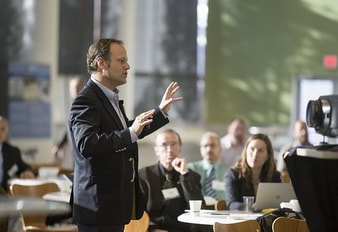 I rushed home and began writing that email. After listing all of the concerns I could remember from others’ comments, I organized those concerns into themes, and then planned my response. Because much of my response mirrors what I’ve already said on both my blog and the radio show, I decided to provide him with links to the relevant posts and shows. Even with the links, I quickly amassed four pages of material. I’m working on paring that down so it won’t overwhelm. I still can’t contain my excitement at what transpired. Indeed, I believe many are unaware of the wonderful opportunity within the grasp of leadership and the singles they want to serve. And I feel especially blessed to have leaders who chose first to listen to the people. Listening opens the door of possibility to establishing the support network that will improve the lives of singles and help to fill their needs. If you’re in a leadership position with stewardship over the singles, I urge you to listen to the people. As you listen, you’ll set the foundation to establish the support network necessary to minister most effectively to LDS singles. As that support network grows, more and more LDS singles will have more and more of their needs met. And that will bring more joy in your journey.
 We all have times when darkness surrounds us so much we can’t see any ray of light offering hope for a brighter tomorrow. That’s life, something all of us experience at one time or another. Of course, there’s always hope because there’s always Christ. The Light of the world can light our way so we can see and take the next step in our eternal journey. The dawn will always come. The sun will always rise, offering the hope of a new day. Whatever darkness surrounds us is never permanent. In this universe created for our journey in mortality, there’s always hope because there’s always Christ. As great as it feels to step out of darkness into the light, there’s always someone experiencing a dark time, so whenever we sit in sunshine, someone else droops in darkness. Do we remember our own experience with darkness enough to turn our hearts in compassion towards them? Sailors looking for the blessed shore in the dark have always sought the lighthouse — the beacon of hope as well as the warning of nearby danger. No matter our own individual circumstances, we all can lift those who despair in the darkness. We can be the lighthouse. Let your light shine  In the Sermon on the Mount, the Light of the world taught His disciples to shine their own lights, because “a city that is set on a hill cannot be hid. Neither do men light a candle, and put it under a bushel, but on a candlestick; and it giveth light to all that are in the house. Let your light so shine before men, that they may see your good works and glorify your Father which is in heaven” (Matthew 5:14-16). Certainly our righteous works can shine the light of example for others to follow. But our light can shine also from our attitude, our faith, and our hope that the sun will always rise and bring a new day. We can each believe in the bright and glorious future our Heavenly Father has prepared for each of us in this life. When we share that attitude, faith, and hope with others, we help them see their full potential. And seeing that potential is the first step to achieving it. Reaching out to others also exemplifies what we all must do to press forward towards achieving that potential, since no one achieves anything meaningful in life alone. We all need a larger community in order to become our best selves and live our best life. Warn your neighbor  Involving that larger community, however, can present a real challenge. Its greatest blessing is also its greatest bane. You can’t feel a sense of community unless the action occurs in both directions. If we aren’t reaching out to each other from both directions, one group will inherently feel disenfranchised. It’s common to see marrieds reach out to marrieds. But marrieds also need to reach out more to singles, singles need to reach out more to marrieds, and singles need to reach out more to each other. A part of that reaching out needs to involve education. We need to help each other to become aware of the connections we have to one another as fellow citizens of the Kingdom. Notice I didn’t say responsibilities or duties. I said connections. We’re all interconnected, even if we don’t feel we are. The challenge is for all of us to begin acting in ways that help everyone feel more palpably those already extant connections. Shine in the dark  That’s where being the lighthouse can take center stage. When we stop putting each other into boxes, quit looking through generational lenses, and see each other as God sees us, we both see more clearly our connections to others and provide an example for others to see the same for themselves. And that’s when the real magic happens. When you’re part of a community where each member truly cares about everyone, everyone can draw hope and strength from the love that permeates the group. Everyone both is connected and feels connected. But that can’t happen until everyone plays their part. Many marrieds are so caught up in their own world that they aren’t likely to take the initiative towards that wonderful unity of the faith. That means we singles must make the first move. We must be the change we seek in the world. So be the lighthouse. Shine your light of goodness into the world around you. Make your unique contribution that can bring hope and encouragement into the lives of others. When you adopt your own personal ministry to improve the lives of others, you’ll find your own life improved. And that will bring you more joy in your journey.
 I’ve read James’s famous discourse about faith and works many times. It’s an absolute classic. If you haven’t read it, check out James 2:14-26. This classic discourse on faith and works has always been one of my favorites. Yet in one reading not too long ago a new interpretation of these verses came to me. I saw them as I had never seen them before. And this new interpretation makes an absolutely classic discourse even more classic. What did I see? Many singles leaders, especially those serving on stake committees, confine their responsibilities to planning activities. They believe filling blank spaces in a calendar is the extent of their responsibility. If any of the singles they claim to be serving have legitimate needs, these leaders believe that the Lord will somehow provide for them. Their job is just to provide a program. Yet simply filling blanks in a calendar is very much like faith without works. They’re both dead. “What doth it profit?” I love how James opens his remarks about faith and works. He describes someone without clothes and starving who is told to be “warm and filled” yet not given clothes or food. Then James asks, “What doth it profit?” Obviously, nothing. And that same answer remains when the same question is posited about the attitude of many single leaders who think their only job is to plan activities. OK, you planned all these great activities. Now, what does that mean to the single adult who grieves over the death of a loved one? Or how about that newly divorced single who still feels the death of a marriage that was thought to last forever? What about the LDS single struggling with issues of identity after losing a job? Just calendaring events isn’t going to mean anything to any LDS singles who have real needs in the real world. So what does it profit that you planned all these activities? Just as well wishes will never clothe and feed naked, starving people, so filling blanks in a calendar will never by itself meet the needs of LDS singles. “Justified by works”  Yes, you can shew me thy faith without thy works, and I will shew thee my faith by my works” (James 2:18) Action is what brings real change into the lives of people. And action comes through works, not just faith. True, faith in its pure and true form will lead to action. But faith without action means nothing. To meet the needs of the people, we must act. You can show me your faith that the Lord will provide for the needs of LDS singles without you lifting even one finger to act in that direction, and in return I will show you my faith that the Lord will provide for the needs of LDS singles by working myself to meet what needs I can. I love the example James provides in Abraham. He produced works in offering his only son Isaac upon the altar, works motivated by faith. And through those works, his faith was perfected. In like manner, singles leaders who focus mainly on filling a calendar see singles activities as an end in themselves. But the truth is just the reverse; activities are the means to the end of meeting the needs of the people. Activities provide the platform from which leaders and individual LDS singles can minister to the singles in their midst. And in so doing, their faith becomes perfected through their works. “The body without the spirit is dead”  James provides the perfect ending to his classic discourse on faith and works with a simple analogy involving the body and the spirit. The body dies once the spirit departs. In like manner, faith dies once the works that should attend it cease. Also in like manner, singles groups can feel absent of life when leaders focus primarily on filling blanks in a calendar. These leaders often wonder why attendance is so small and what can be done to turn things around. We talked last week how to turn ailing singles programs around, but a key part of that transformation is the necessity for leaders to adopt the attitude we are discussing here and now. You must do more than just fill a calendar. You must fill your hearts with compassion and extend your hands to those you serve. You must focus on using the activities you plan as a means to the end of ministering to them and helping to meet their needs. When you do, you’ll inject life into your singles groups and light into your own life. And that will bring you more joy in your journey.
 After church on Sunday, a member of the stake high council asked me if I were going to attend the singles activity later that day. I confided that I haven't been attending because I don't feel welcome. Why should I dress up in a stuffy shirt and tie to sit on benches that aren't that comfortable only to be all alone? I can wear a T-shirt and sweat pants on my couch and be just as alone but far more comfy. So why go? In the ensuing conversation, I learned that he recognized the people hold the perspective of the dating forum. I then shared with him some of what I’ve shared about the dating forum and the activity club many times in this forum. We quickly came to agreement there, but then he simply repeated his invitation without any resolve to change anything. I said I’d think about it. Of course, I didn't go. I did think about that conversation, though, during the following days. Those thoughts led to an important realization: Clearly we see the problem in how singles view activities, but the problem will never be solved unless we take action. But exactly what action is anyone supposed to take? I’ve done this before and so know what to do. But do my local leaders? Based on the conversation I had Sunday, it doesn’t seem so. What can be done to turn around a local singles group so that people choose the support network over the dating forum and the activities club? That's the very question I’m going to answer right now. Get buy-in from leadership  The first thing you need to do is get buy-in from leadership. Nothing happens in this church unless leadership is on board. So you've got to get the vision of the support network yourself. And then you must sell that vision to leadership. And by leadership, I mean both married and single members serving in leadership positions. Everyone from the stake presidency to the high council to the bishopric to any singles leaders serving on both stake and ward levels must adopt the vision of the support network. Anyone who thinks their responsibility is just to calendar activities doesn’t have the vision. You've got to work with them until they adopt the support network. You’ll know they have the vision when they start playing their part in the support network. Those attending activities will actively greet and welcome everyone they can. They'll talk to people, helping them feel somebody cares enough to be interested in them. They'll also look for those sitting by themselves, offering to sit with them or inviting them to join a larger group seated together. Get buy-in from the people  Once leadership is on board, you’ve got to secure buy-in from the people. That means you instill the vision of the support network in every single adult so that they do the same things leaders do — connecting with people and helping them feel supported. Too often we think those in leadership positions do things no one else does. In some respects that's true, but more often than not, leadership is something everyone should display. Leadership is a choice, not a position. And leadership in spreading the vision of the support network is something every single adult should practice. Otherwise, you'll never have the support network. The arrangement of everybody helping everybody happens only when everyone reaches out to everyone. It can't be just those in leadership positions. Everyone has a part to play because everyone matters. Accept nothing less than glory  Support networks take time to build because you must change the way people think. And because we’re hardwired to follow habit, you're going to meet some resistance both from leaders who think their job is to do nothing more than plan activities and from singles who think in terms of the dating forum or the activities club. That's why part of leadership’s role is to instill the vision of the support network in everyone. You must tell people directly what you're trying to accomplish. You must show them what can happen when everyone gets on board with the vision. And you must invite them one by one to play their part in making that vision reality. It won't be easy, and it will take time. But it is possible. I know because I’ve done it. So be patient. Keep working. Love the people. Accept nothing less than glory, and in time you’ll see the support network start to take hold. You'll see people reaching out to each other. You'll see the needs of people being met. You’ll see that you can turn it around. And you'll feel more of the Savior's love for one another. And that will bring you more joy in your journey.
 We all feel the influence of language in every aspect of life. That’s because encoded in language are ways of thinking about and perceiving the world around us. For example, we call a container containing cookies a cookie jar because that’s what it does. A cookie jar is a jar that contains cookies. Likewise, we call that small wedge placed in the gap underneath a door to hold it in place a door stop. That’s because that’s what it does; it stops the door from swinging. Language reflects how we think about and perceive our world. So if we want to improve our thinking, we must improve our language. That’s just as true about LDS singles life as it is anything else. Given the widespread use of less effective language regarding singles, many of us need to wash our mouth out. Enough with “singles program”  Singles program provides a good example. That word program suggests all singles need are activities and all leaders need to do is organize activities. Singles planning committees shouldn’t concern themselves with outreach or friendshipping. Just throw singles together and they’ll naturally pair off, right? I’ve said this before and I’ll say it again — singles don’t need a slate of activities as much as they need true friends who’ll walk with them along the road of life. I don’t remember the literally thousands of singles activities I’ve attended. However, I do remember when a friend reached out with kindness or compassion. Those times are memorable because they contain what matters most. That’s why we should replace singles program with support networks. Support networks describe what singles really need — friends who support each other along the road of life. Changing our language in just this one way will change our thinking about how we all should relate to singles. And what goodness such a perspective of support can bring to the world! Out with “family of one”  I’d shout “Hallelujah!” if that one phrase were the only one requiring elimination from our vocabulary. But, alas, there’s more. I once posted about an experience with my stake president who used the phrase family of one while speaking in sacrament meeting. As I questioned him about it, his responses garnered my respect. He willingly admitted he made mistakes and that his use here was one of them. In the three years since that encounter, I can’t remember hearing family of one, which suggests it may be going the way of the dodo bird. That’d be fantastic if true. I don’t want people to walk on proverbial eggshells just to talk to me. I understand a family by definition requires at least two people. And I’m perfectly OK with that. The Church seems to have caught a ride on that train. Recently the General Authorities have been speaking of individuals and families. This practice — using individuals and families instead of family of one — rightly promotes the family. Its continuance gives me hope other vile vocabulary choices will find extinction. Down with “family ward” 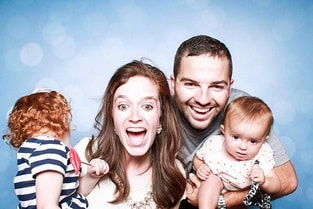 And, in my view, no LDS phrase is more vile than family ward. Oh, what screeching of fingernails on a chalkboard I hear every time someone uses this pernicious expression! And that expression is pernicious. It provides an identity crisis alienating many LDS singles from the Church. Just like cookies jars get their name from what they are and what they contain, so too do family wards get their name from what they are and what they contain. Family wards are congregations for families; the name alone says singles don’t belong there. No matter how much our married friends may insist to the contrary, language by its nature reveals how we truly think and perceive the world. I’ve suggested before we should replace family ward with general membership ward, because that’s who really belongs in these congregations — the general membership of the Church. In my ponderings since, I can understand many wanting a shorter expression. This too is in the nature of language. Using general ward conveys the same meaning — that the general membership of the Church belongs there. In all we do, we should be meeting one another’s needs. Using support networks communicates that intention more effectively than singles program. Trying to be sensitive by watering down the meaning of family with the phrase family of one doesn’t really serve anyone well. And using general ward communicates we all really do belong better than family ward. Language matters. It reflects how we think about and perceive the world. If your language needs some improvement, then wash your mouth out. Use soap if needed. When we improve the language we use, we improve the way we think about and perceive our world. And that will bring us more joy in our journey.
|
Author
Howdy! I'm Lance, host of Joy in the Journey Radio. I've been blogging about LDS singles life since 2012, and since 2018 I've been producing a weekly Internet radio show and podcast to help LDS singles have more joy in their journey and bring all Latter-day Saints together. Let's engage a conversation that will increase the faith of LDS singles and bring singles and marrieds together in a true unity of the faith.
Comment
Joy in the Journey Radio encourages the free discussion of ideas but reserves the right to remove and/or block comments which do not conform to LDS standards.
Donate
Joy in the Journey Radio offers many free resources to help LDS singles everywhere, but it certainly isn't free! Help Joy in the Journey Radio in its mission to improve the lives of LDS singles by donating today.
Posts by Month
December 2022
Categories
All
|
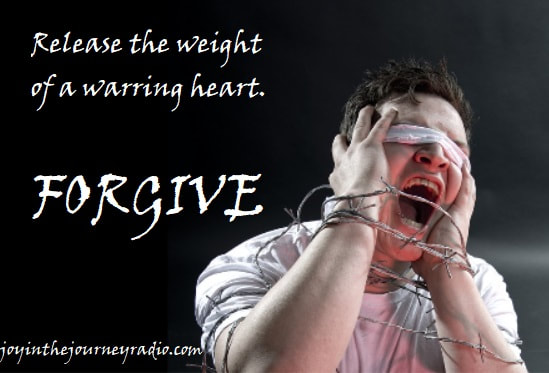

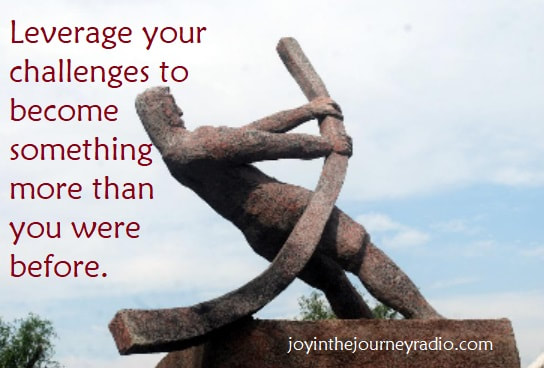

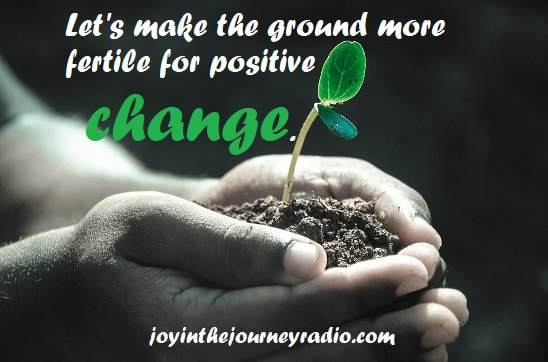

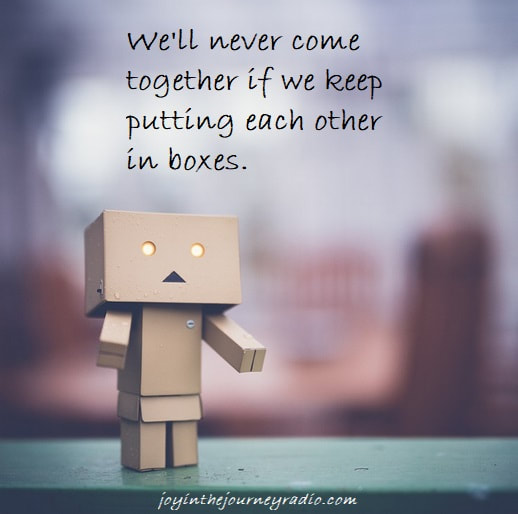
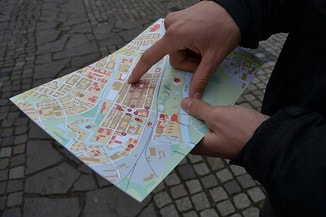

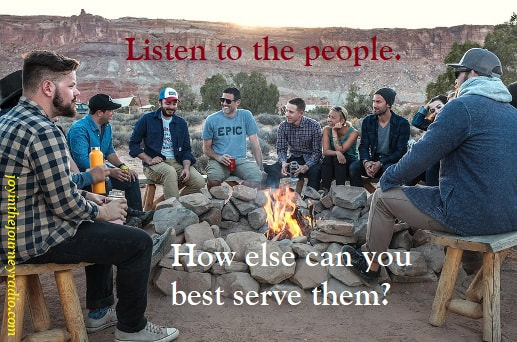


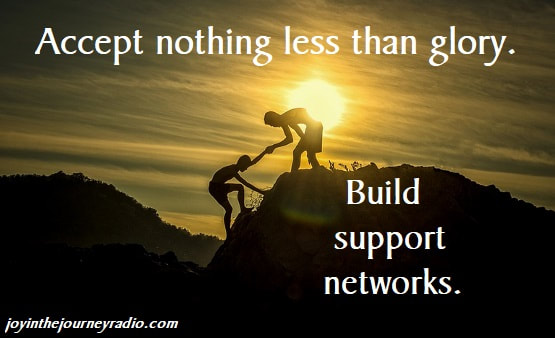
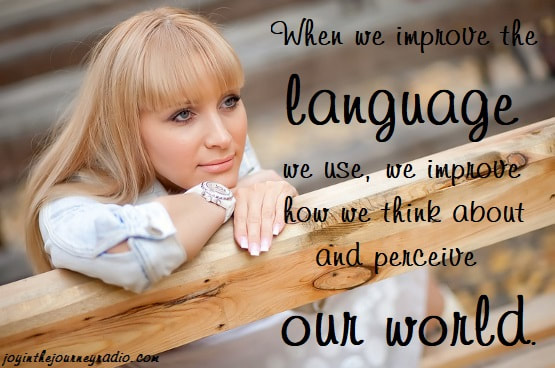
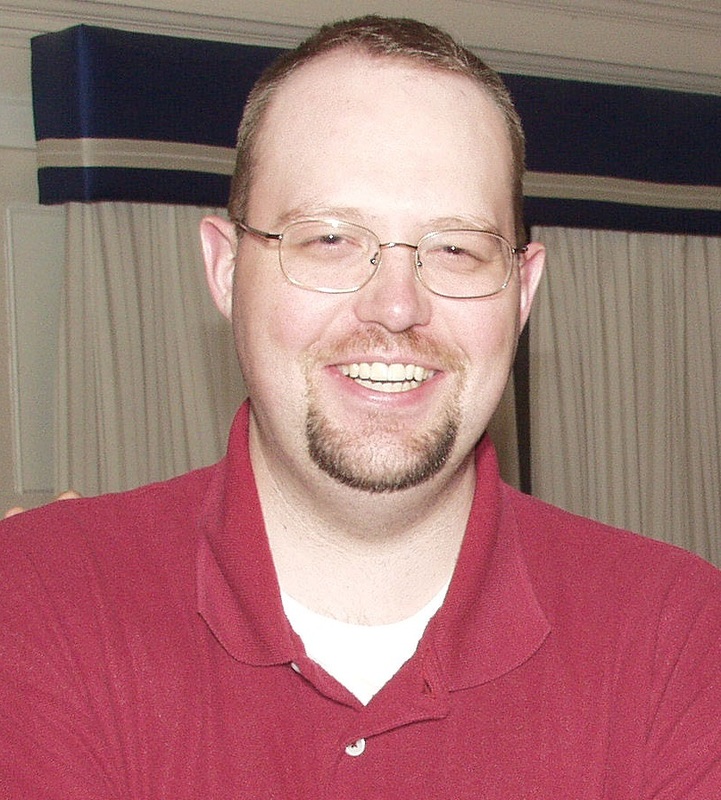
 RSS Feed
RSS Feed